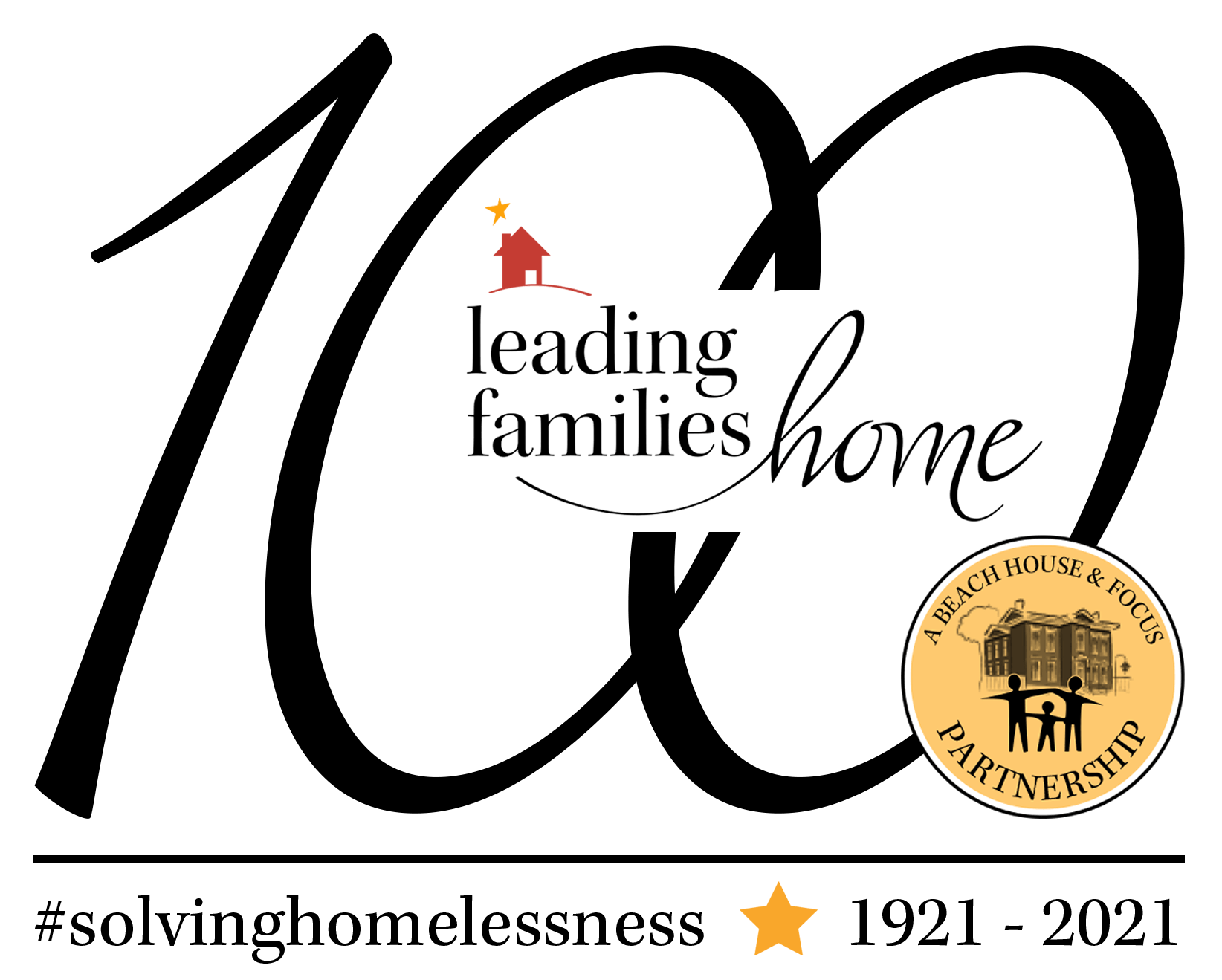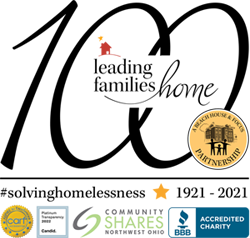The Blade: First-ever UpTown cleanup serves a dual purpose
November 21, 2025
First-ever UpTown cleanup serves a dual purpose
About 75 volunteers participated in the first-ever UpTown Cleanup Day on Friday.
Beyond the obvious goal of helping one of Toledo’s near-downtown neighborhoods make more strides toward a comeback, the event had a more serious objective for some of the participants: keeping an eye out for homeless people in need of services.
The Toledo Lucas County Homelessness Board was one of the event partners for that reason.
It viewed the cleanup as a chance to become more visible and possibly connect more directly with those in need, said Julie Embree, the board’s executive director.
“There’s been an increase in the number of folks on the street, with the economy the way it is and the lack of affordable housing,” she said. “We want to provide grace to our homeless folks.”
Toledo’s regular number of 588 shelter beds are at capacity, Ms. Embree said.
“There are more than 250 people on wait lists now,” she said.
Sandra De Steno, United Way of Greater Toledo 211 director, said that wait list includes about 175 families.
The last time the need was this great was during the coronavirus pandemic. She said relief came back then in the form of the American Rescue Plan Act of 2021. Also called the coronavirus stimulus package, ARPA provided $1.9 trillion in federal money to help cities nationwide.
Now, there are “fewer and fewer resources to stabilize them,” Ms. De Steno said of homeless people.
“There’s a lot of people focused on [donating] food right now, but food is only one of the many things that people need,” she said.
Lisa Pengov, the homelessness board’s operations manager, said the problem “keeps getting worse.”
“We have a lot of encampments popping up right now,” she said. “Homeless individuals are staying out on the street because all of the shelters are full. The encampments are getting larger and larger, and we’re getting more people on the street.”
The event was organized by ConnecToledo, in partnership with Downtown Toledo Improvement District.
Betsy Ujvagi, ConnecToledo office manager, agreed the cleanup was a good “visibility opportunity” for the homelessness board to help expand its reach.
“We’re in a different environment this year,” Ms. Embree said. “We anticipate the number of people we see on the street is going to grow. Let’s find some grace and connection for our unsheltered folks. We’re asking our businesses for help to do that.
As much as anything, Ms. Embree said, the UpTown district cleanup was an event “to showcase how we can work together and find solutions.”
She and others said they hope it expands to other neighborhood districts.
They saw Friday’s event as the kickoff for multiple cleanups in the spring and fall of 2026.
One of the many other groups involved was Keep Toledo/Lucas County Beautiful.
Its executive director, Adam Cassi, said that group provided gloves, bags, litter tongs, and other supplies.
Volunteers met at 10 a.m. at UpTown Green, 1904 Madison Ave., and spent a couple of hours picking up litter.
“It’s a way to beautify our city, but it also shows people are dedicated to making our city a good place to live,” Mr. Cassi said.
He said cleanups are good for residents and good for the business community.
“There’s a lot of research that says once an area is clean it’s easier to keep it that way,” Mr. Cassi said. “It shows that we take pride in our city, and that littering is socially unacceptable.”
One of the people picking up trash was Johnathan Nichols, 35, Family House marketing and development director.
“We’ve seen an increased need and we continue to rally for community support to serve the families,” Mr. Nichols said.
Another volunteer, Corey Julius, 34, works at the nearby Toledo Metro Federal Credit Union, 1212 Adams St., as its vice president of lending.
“I want to give back to the community. Helping to clean up is an easy way for us average people to chip in a bit,” Mr. Julius said. “I was pleasantly surprised to see the turnout. Honestly, there are more people than I expected to be here.”
First Published November 14, 2025, 4:30 p.m.
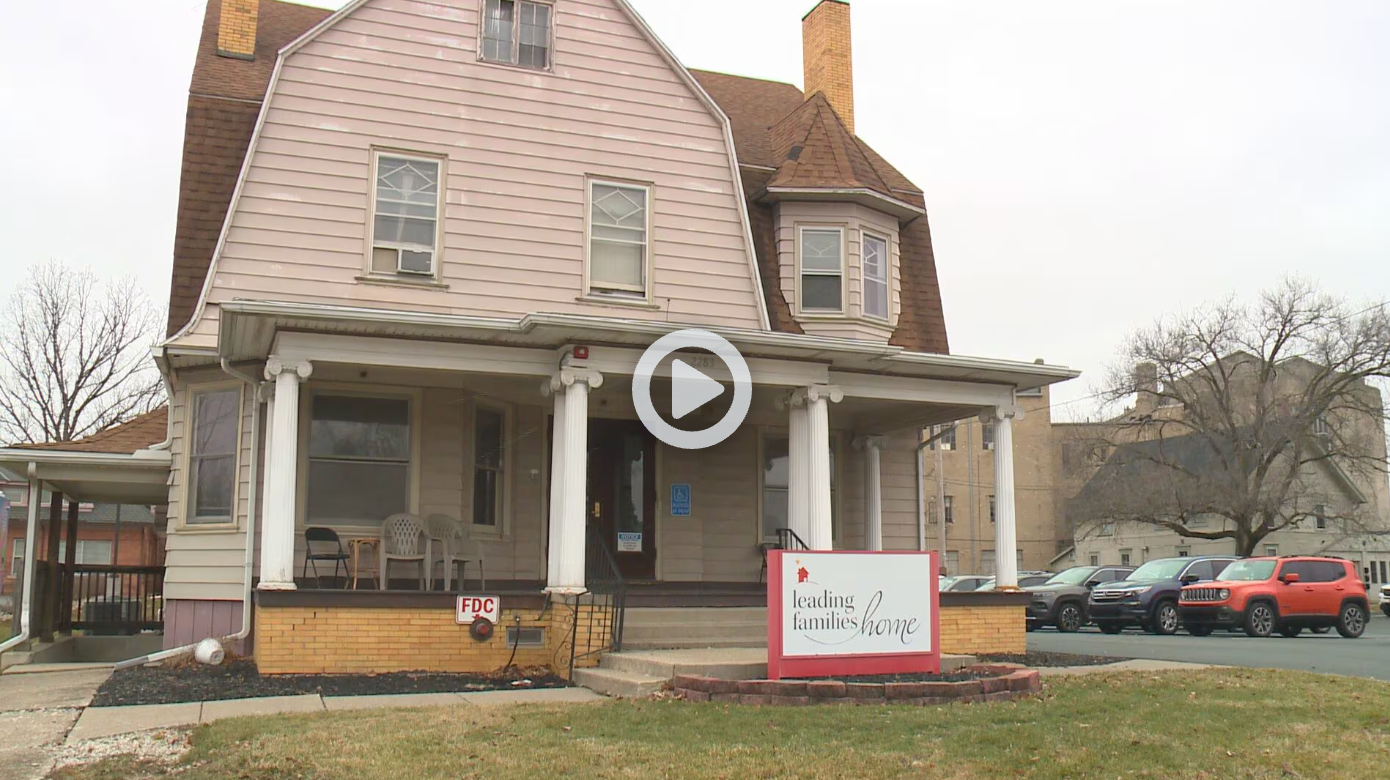
TOLEDO, Ohio (WTVG) - Leading Families Home has been helping people achieve independence and economic stability for more than a century. Now, leaders say they are seeing a sharp increase in requests for emergency help. Leading Families Home has three different campuses around Toledo that can provide shelter for more than 200 people on any given night. But doing that is becoming more and more challenging. “We are an agency that helps families in crisis. We have three different properties that have shelters for emergency family shelters for homelessness and we have two housing programs, we offer behavioral health and substance abuse, so that we can help people full cycle,” Jennifer Jacobs, the executive director, said. But providing that support is becoming more difficult. “We’ve had probably 20 to 30% cuts amongst grants this entire year and so as the need grows, our financial support is decreasing at the same time and so that is leaving a large gap to make up,” Jacobs said. Jacobs loves what she does. In fact, her work goes home with her most nights. “It’s a lot of sleepless nights, it’s constantly on my mind, it’s constantly in my heart, I’m constantly thinking where do we go from here, what are the answers, where are some answers we haven’t thought of before, what else could we be doing?” Jacobs said. 13 Action News visited the Beach House Ashland, one of the organization’s emergency shelters. While the group helps hundreds of families at the three shelters every year, it is not enough. “Our numbers are higher than they have been; we have 146 families on a waitlist just waiting to get into shelter in Toledo,” Jacobs said. What keeps the staff going is the success stories and there are plenty of them. Lurnetta Brackette said her world was recently turned upside down. “I’m trying not to cry, because I’ve been through a lot,” Brackette said. She said her husband was the primary provider. He got sick and had to retire from his job, the two lost their home and are now at the shelter. “There is a better day coming, you just have to do the work, that’s what we did. I am thankful, truly thankful,” Brackette said. “We know that we are making a difference, with the help of the community, we’re definitely making a difference. It’s just sometimes, I just wish I could snap my fingers and help everybody all at the same time and end the problem,” Jacobs said. Brackette and her husband are looking at a new place to call home this week. Leading Families Home also runs Beach House on Erie Street, as well as Family House. There are a lot of ways you can help, you can donate things like canned goods, bedding, money and time. If you need the shelter, call 211. To learn more about Leading Families Home, click here. Source: https://www.13abc.com/2026/01/15/more-local-families-need-shelter/?fbclid=IwY2xjawPWE1dleHRuA2FlbQIxMQBicmlkETFqWGhGbktMZ3RocHN1T2FXc3J0YwZhcHBfaWQQMjIyMDM5MTc4ODIwMDg5MgABHsgMdiahWZCNRyRah7J5ijuTRajGokQO0Ep0dN-sUZsoSXSzG-37ixjudV7Y_aem_yrWN5Ev2ipukk-ya_20J2w
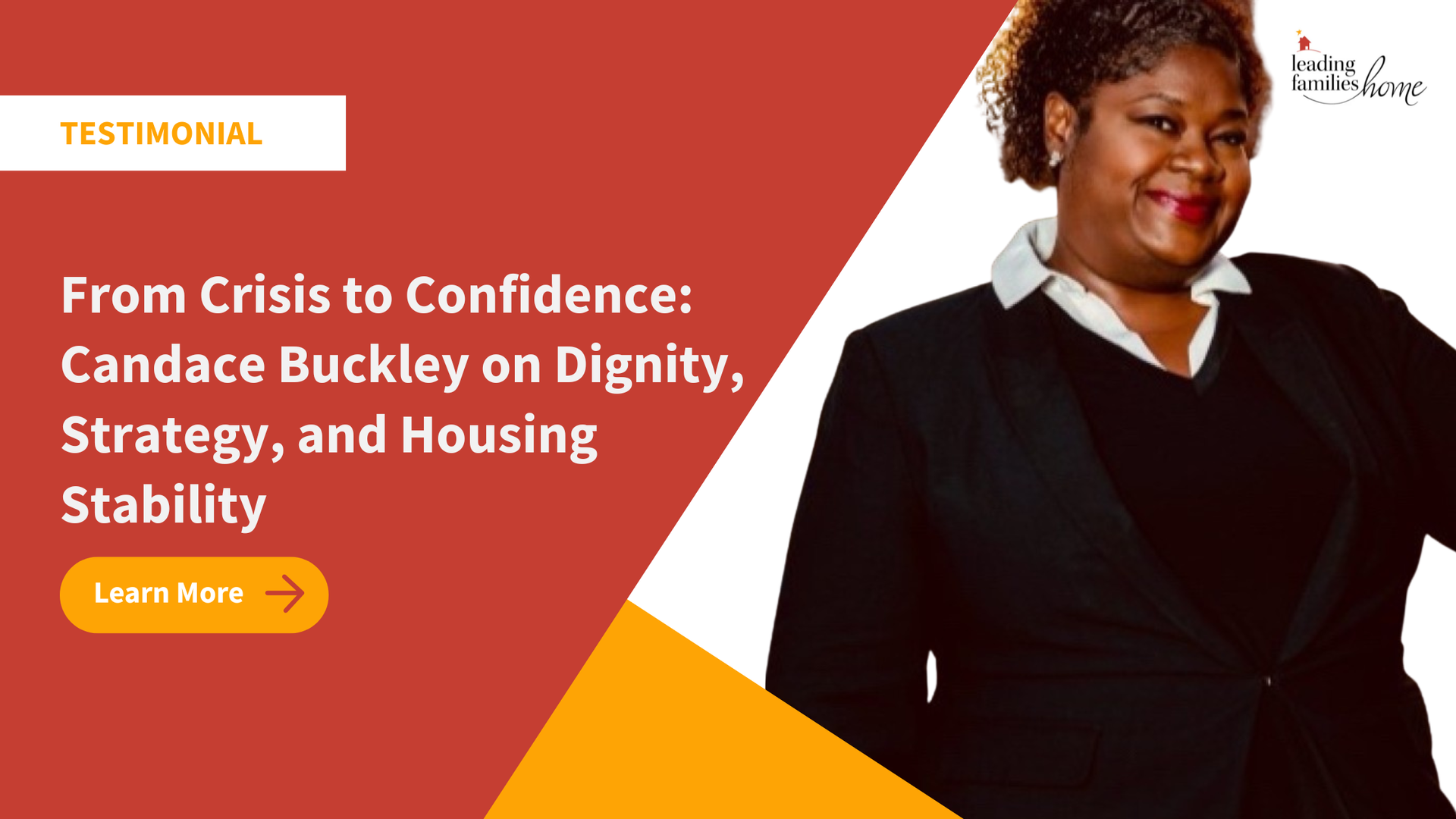
A Partnership Built on Trust and Outcomes Candace Buckley’s support for Leading Families Home stretches back more than five years administering grants, and then serving as the Deputy Director at the Toledo Lucas County Homelessness Board. Her role required strict oversight and accountability. What she witnessed was an organization consistently rising to the moment. “I knew they were a good organization because their end-users told me,” she said. “Working at the Board, you’d get calls daily, but the calls about Leading Families Home were compliments. Families would name staff directly, thanking them for compassion and care. That said everything to me.” A Century of Impact, Culture, and Stability At the time, Candace was helping expand homelessness system funding from 11 grants to more than 50, ensuring agencies had the resources to meet growing needs. Through that work, she watched Leading Families Home establish itself as a critical anchor, uniquely focused on supporting families through emergency shelter and long-term housing pathways. “You don’t survive for 100 years in this community unless you’re innovative, resilient, compassionate, and collaborative,” she said. “Leading Families Home is all of those things.” Candace credits their culture and staff as core strengths: people who show up with pride, call community members by name, and make sure every family feels seen and respected. “No one wants to be in an emergency shelter. But Leading Families Home leads with dignity and focuses on hope and healing. They meet each person where they are.” A Success Story That Defines Why the Work Matters Candace has witnessed many success stories over the years but carries one specific story with her: a woman she knew personally who entered the shelter system after a sudden decline in health and stability. Once a high-earning corporate professional and veteran, she experienced a rapid and traumatic shift in circumstances. Leading Families Home became a place of trust, connection, and emergency respite. “She was determined to rebuild, and she did so quickly,” Candace said. “Leading Families Home didn’t define her by her crisis. They understood her situation, treated her with dignity, and helped her stabilize. That experience changed her trajectory.” Intentional Case Management That Drives Housing Stability From Candace’s perspective, Leading Families Home’s strength lies in its intentionality. Their robust case management ensures families remain supported long after they leave the shelter, which is a key reason so many remain stably housed. She also believes the organization’s strong relationships with landlords are another major differentiator. These relationships help families overcome stigma and secure healthy housing in a market that is increasingly limited and competitive. Strategic Alignment Across Systems and Community Needs Candace sees alignment between Leading Families Home’s mission and her own work leading the Toledo Lead Resource Center. She values Leading Families Home’s commitment to placing families in safe and healthy environments, especially critical in a region where aging housing stock and environmental risks create real barriers to long-term stability. She emphasized that safe, healthy, and affordable housing stability is foundational to economic mobility. Looking Forward: Strengthening Families and Toledo’s Future Candace hopes to see continued investment in Leading Families Home and envisions future opportunities to expand services, including workforce development, childcare support, and clinical partnerships. “Supporting Leading Families Home is supporting Toledo’s mission to help families do better,” she said. Her belief in the organization’s impact is clear, grounded in years of firsthand experience: “Every single family served by Leading Families Home is worth it, no matter their background or what brought them there. Leading Families Home sees people first, not their crisis. That’s why their work matters.”
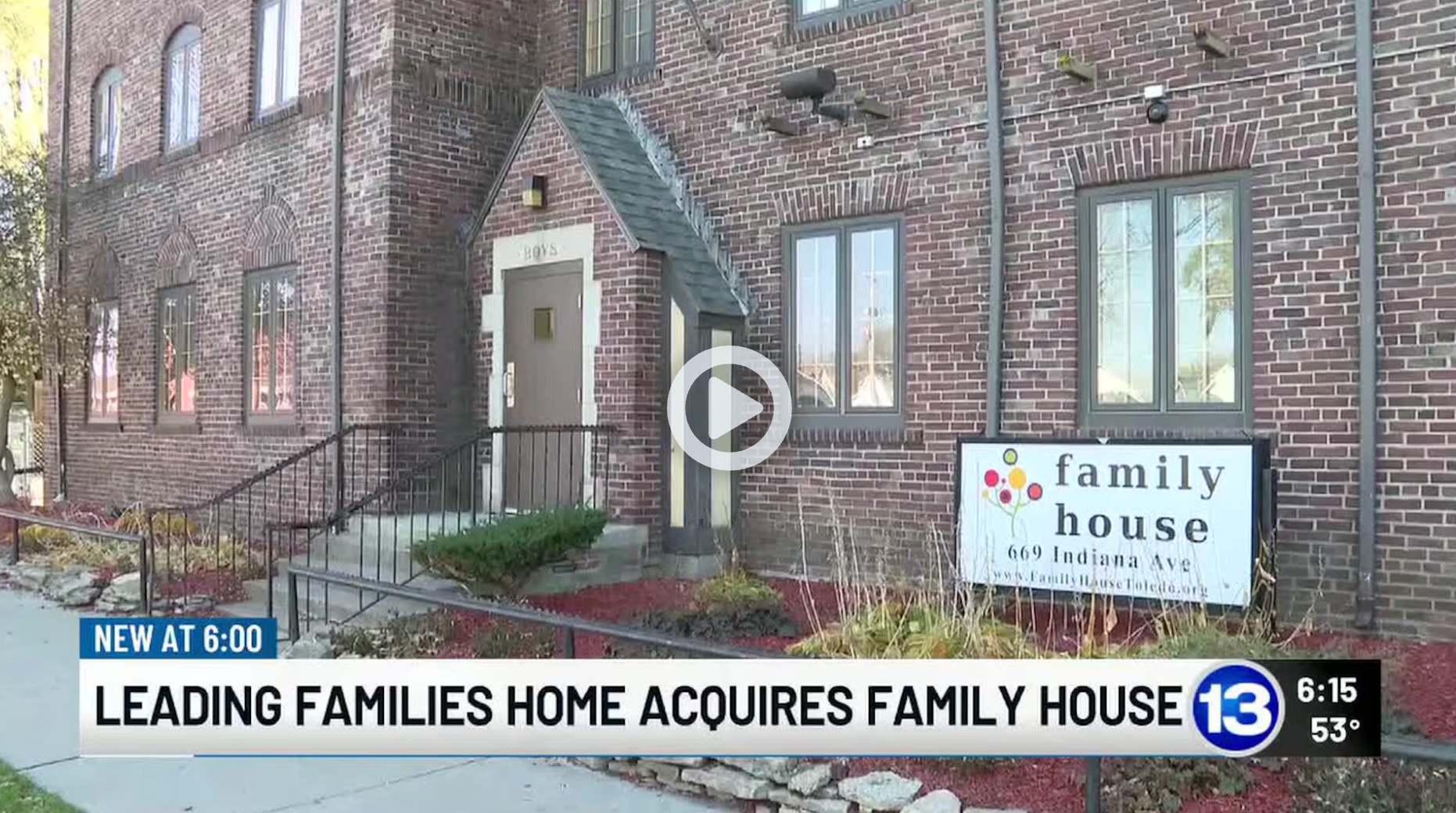
TOLEDO, Ohio (WTVG) - The Family House shelter will continue operating after Leading Families Home acquired the location, receiving nearly $300,000 from city council. The Family House had been operating in the red for over a year and was at risk of closure, Leading Families Home executive director Jennifer Jacobs said. Without the funding, the shelter would have closed and put over 100 residents back on the streets. “It helps with the transition period because we’re waiting for the grants to be transferred over to the Leading Families Home name. We can’t allocate salaries; there are many things we can’t do until these transitions take place,” said Jacobs. Brittany Perkins, a resident at Family House, said she doesn’t know where she would be without the shelter. Perkins said she came from a domestic violence situation and stays at the shelter with her one-year-old son, Jasper. “I am extremely grateful,” Perkins said. The shelter’s family focus allows Perkins and her son to stay together. “They’re able to give you a single room for you and your family to be in. They’re giving you everything, bed sheets and all that. They’re giving you a new opportunity,” Perkins said. The merger creates the largest organization in the area dedicated to serving families in crisis. “We’ll have room for about 204 extra beds in the community to help families,” Jacobs said. Perkins said she’s set up with a place to rent and is just waiting for a unit to become available. Source: https://www.13abc.com/2025/11/15/leading-families-home-acquires-family-house-shelter/
